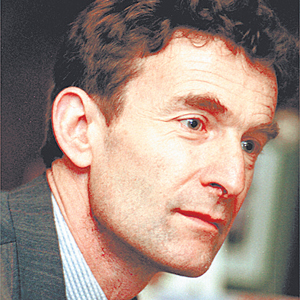By Andrew Warshaw
It will go down as the day football’s lawmakers decided they knew better than fans, players, managers and referees alike. And you had to be there to believe it.
Outside FIFA’s plush headquarters on a freezing late winter’s morning on the outskirts of Zurich, the snow chucked it down as if there was no tomorrow.
Trams were the only form of public transport available to Saturday morning shoppers willing to brave the elements.
Inside a basement meeting room, having made the short journey by limousine from one of Zurich’s plushest hotels, the good and great of football – otherwise known as members of the International FA Board — dusted the snow off their shiny shoes and got down to business.
On this year’s agenda was a suggestion to give greater powers to the increasingly redundant fourth official; a request to stop teams being disadvantaged by having injured players treated off the pitch; and an idea to soften the triple punishment of penalty, red card and suspension.
All three were adjourned until mid-May for a final decision. The only innovation that never even got that far was goal-line technology. And that on the day when Birmingham City were knocked out of the FA Cup having had a perfectly good goal disallowed. You couldn’t have made it up.
It had been widely anticipated that after years of intense but fruitless debate, Thierry Henry’s infamous handball last November would finally prompt the IFAB into giving the green light to scientifically help referees make game-changing decisions.
Instead, a majority of football’s custodians voted 6-2 against both Hawkeye, used successfully in cricket and tennis, and a highly sophisticated microchipped ball system developed in Germany. Astonishing. The one area of football on which virtually everyone was in agreement scrapped by a handful of self-interested traditionalists too afraid to take responsibility to push the sport into the 21st century.
To make matters worse, the IFAB – made up of FIFA plus the four home British associations – laughably decided to consider pressing ahead with the more “human” experiment of two extra officials, trialled during this season’s Europa League and the pet scheme of UEFA president Michel Platini.
Platini, predictably, slipped away into the snow after a hearty lunch without comment on why the best way of deciding whether the ball has crossed the line had been permanently ditched. Sepp Blatter, the FIFA president, was likewise nowhere to be seen following the four-hour morning debate.
So who was left to defend this scandalously backward step? Answer – FIFA’s general secretary Jerome Valcke and the Welsh and Northern Irish, two federations who don’t even have a professional league yet are each granted a vote whenever any changes are made to the laws of the game.
That the Welsh and Northern Irish should scupper any hope of progress by siding with FIFA against the pro-technology English and Scots (SFA chief executive Gordon Smith had a face like thunder) was a shameful shirking of responsibility.
FIFA have twice as many votes as the individual federations and while they and their supporters congratulated themselves with a champagne reception before being chauffeur-driven to the airport, trumpeting the fact that they had won an important principle (i.e we don’t want technlogy at all), the companies who had worked tirelessly to prove that technology worked shook their heads in exasperation.
Year after year, Hawk-Eye and Cairos, a German firm owned by Adidas — rivals in business but united in the cause of technology — had been invited to the IFAB to present their findings. And year after year they were sent away to fine-tune their product with every encouragement that they were on the right track to solving one of football’s greatest injustices. What, one might ask now, was the point?
“I don’t understand why they invited us out there to start with if they never wanted technology at all,” said Paul Hawkins, managing director of Hawk-Eye, the system used so successfully in tennis and cricket. “The technology works but their process for decision-making is totally unrepresentative of football. I doubt there is any issue in football that is so unanimous.”
Cairos spokesman Oliver Braun added: “We have already invested £15m on this. If they had said no before, it would have saved a lot time, effort and money. The solution to these incidents is here. It works but they don’t want to use it.”
All we are talking about are rare instances of the ball crossing the line, not a proliferation of video replays all over the pitch. For the Welsh to suggest the one could lead to the other was a sneaky tactic.
FIFA clearly think they can speak for everyone else. Two generations after Geoff Hurst’s controversial World Cup goal, the IFAB could at last have taken a bold, sensible, innovative decision. Instead, they have ensured the game stands still.
The World Cup takes place in three months’ time. Wait for the uproar if a team is knocked out in similar circumstances to the way Birmingham were eliminated from the FA Cup on Saturday. How will the game’s lawmakers wriggle out of that one?
Andrew Warshaw is a former sports editor of The European, the newspaper that broke the Bosman story in the 1990s, the most significant issue to shape professional football as we know it today. Before that, he worked for the Associated Press for 13 years in Geneva and London. He is now the chief football reporter for insideworldfootball.
Contact the writer of this story at zib.l1713513930labto1713513930ofdlr1713513930owedi1713513930sni@w1713513930ahsra1713513930w.wer1713513930dna1713513930">zib.l1713513930labto1713513930ofdlr1713513930owedi1713513930sni@w1713513930ahsra1713513930w.wer1713513930dna1713513930.

